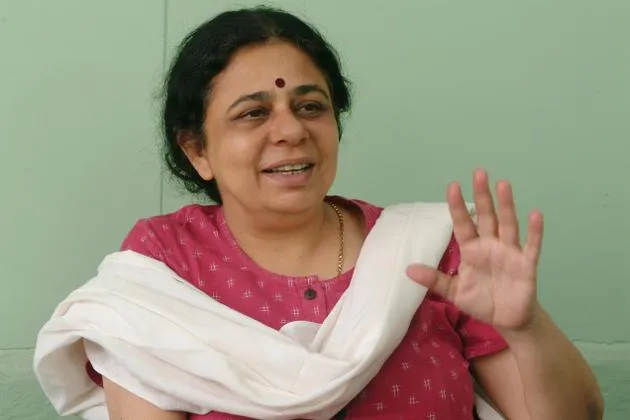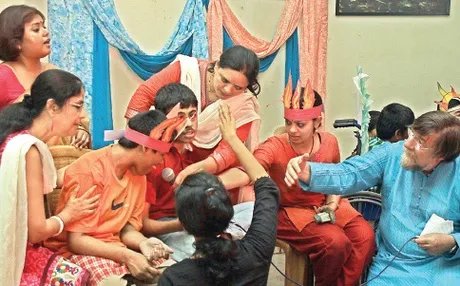Disability is not a part-time job, it is a way of life: Poonam Natarajan

Statistics reveal that over 21 million people in India are suffering from one or the other form of disability. This is equivalent to 2.1% of the population. Among the total disabled in the country, 12.6 million are males and 9.3 million are females. Among the five types of disabilities on which data has been collected, visual impairment at 48.5% emerges as the top category. Others in sequence are: movement (27.9%), mental (10.3%), speech (7.5%), and hearing (5.8%). This data shows a problematic situation, and we spoke about this with Poonam Natarajan, chairperson of the National Trust for People with Disabilities, during the India Inclusion Summit recently.The beginning of her passion towards children with special needs
The National Trust is a statutory body within the government of India to help people with disabilities and special needs. Poonam is also a great woman with an awesome story. The most inspiring thing about her is her ability to transform every challenge into an opportunity. And that’s what she did almost 30 years ago, when her son was born with a disability. “When he was born I was in university doing research and hoping for a university career. Doctors told us that we couldn’t do anything about our son. They told us he was a hopeless case. They were so wrong. My son has contributed to this world as much as any other person. I started to train myself in this field and found it exciting. My son became my guru, teaching me to break stereotypes. I realized I had to unlearn and relearn many things. Disability helps you look at life with a different perspective and a higher purpose,” says Poonam.

VidyaSagar and the school for disabled children
“There was no school which would admit my son because he was disabled. That’s how I decided to start a centre. At first, I started to work with other families to demystify disability. When I started this journey I saw a lot of passionate people who wanted to work in this field, and joined me in this adventure. I started the centre in my garage. I had to move four locations before settling in our present address in Chennai,” says Poonam. The centre she found is called VidyaSagar and is right now reaching out to over 3,500 families who have children with special needs.
From the school to the National Trust
The great job that she was doing and her competencies were an inspiration not just for people in Chennai, but also for the government. “I was director of the school for 23 years and I felt I needed to move on. The school is like my baby and I wanted to see it independent of me. At the same time a position for NGO expert opened up at the National Trust for People with Disabilities. The scope was to help parents of children with disabilities and provide safety and support to them. As the chair of National Trust my task is to implement this across the country and to change the attitude of not only people but specifically parents of disabled children. They are usually passive and negative. I want them to think what opportunities they can create for their children so that they can become contributing citizens in the country. It has been a difficult task, but at the same time it has also been very exciting because we have a great reach and I have met so many wonderful people,” says Poonam.
Her work with the National Trust
Managing a school is completely different than having a role in the government, and adapting was not so easy for Poonam. “Working with the government you really need to work in a very different way. You need to constantly work on your perspective. But it is worth it, because in India there are so many parents without knowledge and information, especially among the poor. And sometimes children are abandoned for that. I think it is just lack of resources and information. The landscape of disability in India has improved a lot in the last 20 years but it is still a long journey. Here, at the Inclusion Summit, it seems that the whole country is changing. But out there when you go to a district headquarter or a village you find a different reality that needs a lot of support system. And it may need another 20 years to change. But everything starts with a small step and we are doing it. People need to change their attitude towards disability,” states Poonam.
Her presence at the India Inclusion Summit was very important and when we asked her about the event she said, “It’s fantastic. All these 750 people are going to be ambassadors of inclusion in India. And all those stories of achievers show us that there are many possibilities and the only way to make this happen is to go out and try. Because we have to remember that disability is not a part-time job. It’s a way of life.”







